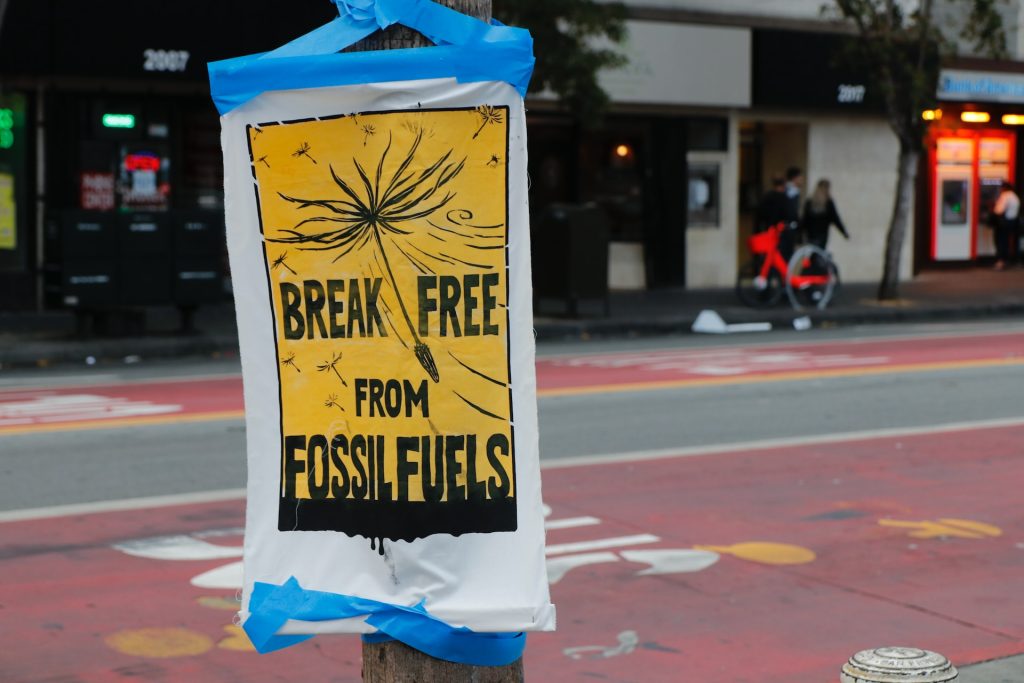In the grand narrative of human progress, fossil fuels have played a pivotal role, fueling the engines of industrialization and powering the very infrastructure that defines modern society. However, as we find ourselves at a critical juncture in the face of environmental challenges, it becomes imperative to unravel the story of fossil fuels, understanding both their contributions and the pressing need for alternatives that can steer us toward a sustainable future.

The Rise of Fossil Fuels
Fossil fuels, comprising coal, oil, and natural gas, have been the driving force behind the world’s energy consumption for over a century. The Industrial Revolution, with its hunger for power, marked the ascendancy of coal as the primary energy source. Later, the discovery of vast oil reserves and the development of natural gas technologies further solidified the dominance of fossil fuels in the global energy landscape.
The Environmental Toll
While fossil fuels have propelled human progress, they come at a considerable cost to the environment. The combustion of fossil fuels releases carbon dioxide (CO2) and other greenhouse gases into the atmosphere, contributing significantly to global warming and climate change. The extraction and processing of these fuels also lead to habitat destruction, water pollution, and air pollution, impacting ecosystems and human health alike.
Finite Resources
One of the most pressing concerns surrounding fossil fuels is their finite nature. These resources, formed over millions of years through geological processes, are being depleted at an alarming rate. As we exhaust easily accessible reserves, the quest for more challenging and environmentally sensitive sources, such as deep-sea drilling or tar sands extraction, poses further risks and challenges.

Energy Security and Geopolitics
The reliance on fossil fuels has been a catalyst for geopolitical tensions, as nations vie for control over oil and gas reserves. The concept of “energy security” becomes a central theme in international relations, shaping alliances and conflicts. The pursuit of alternative energy sources could mitigate these geopolitical tensions, fostering a more sustainable and cooperative global energy landscape.
Renewable Energy: The Alternative Frontier
The urgency to transition away from fossil fuels has given rise to the exploration of renewable energy sources. Solar, wind, hydroelectric, and geothermal energy offer sustainable alternatives that harness the power of nature without the detrimental environmental impacts associated with fossil fuels. These sources are not only abundant but also replenishable, providing a cleaner and more sustainable energy future.
The Economic Case for Alternatives
Beyond environmental concerns, the economic case for alternative energy sources is compelling. The renewable energy sector is a burgeoning industry that fosters innovation, job creation, and economic growth. As the costs of renewable technologies continue to decline, investing in clean energy becomes not just an ecological imperative but a strategic move for long-term economic prosperity.
Technological Innovation
Advancements in technology play a crucial role in driving the shift toward renewable energy. Breakthroughs in energy storage, more efficient solar panels, and grid management technologies are transforming the renewable energy landscape. As these innovations continue to evolve, they bring us closer to a future where sustainable energy sources can reliably meet the world’s growing energy demands.
Individual and Collective Responsibility
While governments and industries play a pivotal role in shaping the energy landscape, individuals also bear a responsibility in steering the course toward sustainability. Adopting energy-efficient practices, reducing personal carbon footprints, and supporting policies that encourage the transition to clean energy are tangible ways in which individuals can contribute to the global shift away from fossil fuels.
Climate Resilience and Adaptation
Addressing climate change requires not only reducing our reliance on fossil fuels but also adapting to the changes that are already underway. Sustainable practices, reforestation efforts, and investments in climate-resilient infrastructure are essential components of a comprehensive strategy to mitigate the impacts of climate change.

The story of fossil fuels is one of both triumph and consequence. While these resources have fueled the engine of progress, they have also contributed to environmental degradation and geopolitical tensions. As we stand at the crossroads of history, the imperative to transition to alternative, sustainable energy sources has never been clearer. The pursuit of renewable energy is not just an environmental necessity; it is a pathway to economic growth, technological innovation, and a more harmonious relationship with the planet we call home. By collectively embracing cleaner, more sustainable alternatives, we can shape a future where energy is not a source of conflict but a beacon of shared prosperity and environmental stewardship. It’s time to move beyond the barrel and into a new era of energy that respects the delicate balance of our planet.





